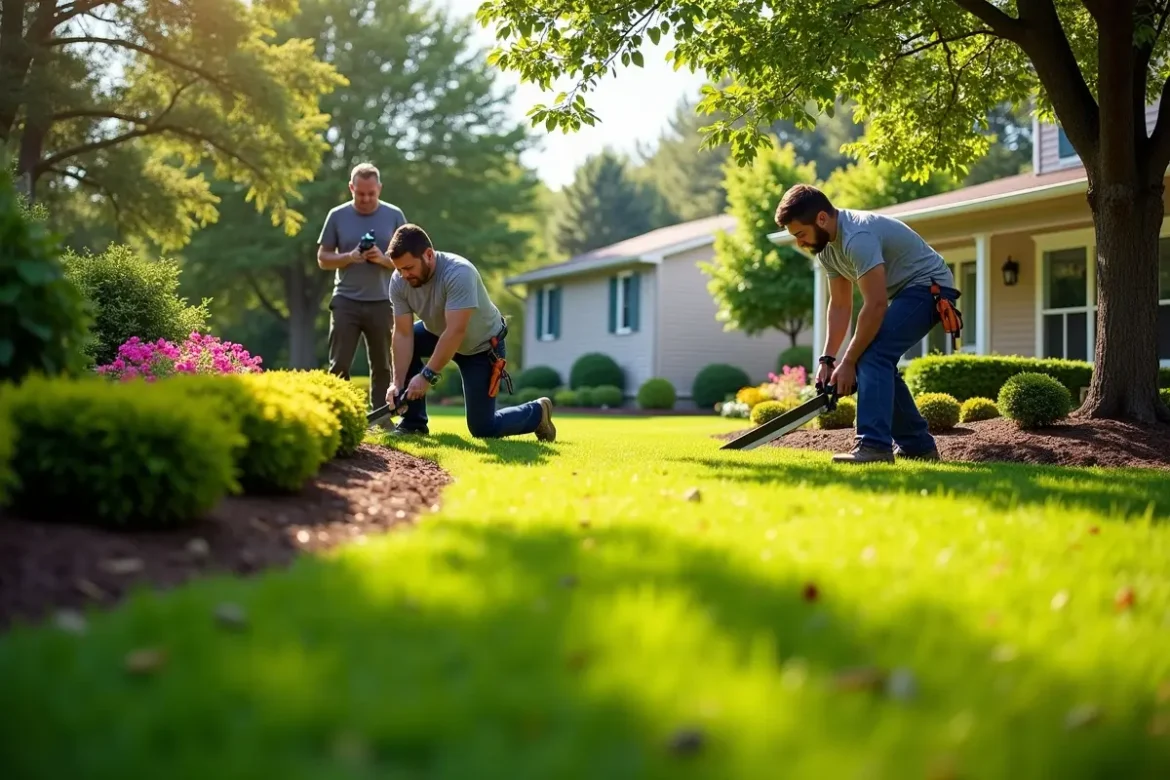
Thinking about putting your home on the market? You’ve probably spent time decluttering, painting, and fixing up the interior—but what about your yard? Many sellers underestimate how much landscaping can influence a buyer’s first impression.
Potential buyers often decide within seconds if a home feels right, and that judgment begins the moment they pull up to the curb. So, why does landscaping matter so much before selling your home?
Contents
- 1 First Impressions Start Outside
- 2 Boost Your Home’s Market Value
- 3 Landscaping Sells Homes Faster
- 4 Outdoor Spaces Are an Extension of the Home
- 5 Easy Landscaping Improvements With Big Impact
- 6 Avoid Common Landscaping Mistakes
- 7 How Landscaping Influences Curb Appeal
- 8 Why Timing Matters
- 9 It’s About More Than Looks
- 10 Final Thoughts: Make a Lasting Impression
First Impressions Start Outside
Buyers often form an opinion about your property before they even step inside. A well-maintained yard signals that the entire home has been cared for. Overgrown grass, wilted plants, or cluttered pathways can turn off potential buyers instantly.
On the flip side, a freshly manicured lawn, vibrant flowers, and trimmed shrubs create a welcoming vibe. It’s not just about aesthetics—it’s about setting the tone for the entire showing.
Boost Your Home’s Market Value
You might be surprised how much value a landscaping service adds. Studies show that attractive landscaping can increase your home’s value by up to 15%. This isn’t just about fancy gardens or elaborate water features.
Simple upgrades like planting seasonal flowers, adding mulch, or installing outdoor lighting can make a significant difference. Buyers often perceive homes with well-kept yards as move-in ready, which can justify a higher asking price.
Landscaping Sells Homes Faster
Time is of the essence when selling a home. The longer your property sits on the market, the more buyers start to wonder what’s wrong with it. Great landscaping can speed up the sale process. A home that looks appealing from the street is more likely to draw people into an open house or schedule a private tour.
Even small enhancements, like a newly planted flower bed or power-washed walkway, can be enough to capture attention and get buyers through the door sooner.
Outdoor Spaces Are an Extension of the Home
Today’s buyers aren’t just looking at square footage inside the home. Outdoor living spaces are becoming increasingly important, especially as people seek more ways to enjoy their surroundings. A well-designed backyard can feel like an extra room—a place for entertaining, relaxing, or letting kids play.
Simple touches like a cozy seating area, clean patio, or tidy garden can help buyers visualize themselves spending time there, which makes your home more appealing.
Easy Landscaping Improvements With Big Impact
You don’t need to spend a fortune to see results. Here are a few simple landscaping updates that can dramatically improve your home’s appeal:
- Fresh mulch – Instantly revives garden beds and adds a polished look
- Seasonal flowers – Bright pops of color can draw the eye and boost curb appeal
- Pruned trees and shrubs – Keeps things tidy and ensures nothing blocks windows or walkways
- Power-washed driveway and walkways – Removes grime and makes the exterior look cared for
- Outdoor lighting – Enhances safety and makes the home inviting, even in the evenings
A little effort goes a long way. These updates are cost-effective, quick to implement, and can give you an edge in a competitive market.
Avoid Common Landscaping Mistakes
While improving your yard is important, it’s easy to go overboard or make choices that don’t appeal to buyers. Here are a few things to keep in mind: Overly personal landscaping choices—like quirky garden ornaments or elaborate themed gardens—might not suit everyone’s taste.
High-maintenance plants can be a turn-off if buyers see them as extra work. Large trees close to the home may raise concerns about roots affecting the foundation or blocking natural light. Aim for a clean, neutral look that allows buyers to envision their style without distractions.
How Landscaping Influences Curb Appeal
Curb appeal isn’t just a buzzword—it genuinely affects how buyers feel about your home. Landscaping plays a key role in this. A neat front yard, inviting entryway, and thoughtful plant choices make buyers feel welcomed from the get-go.
Even small details, like a freshly painted front door or new house numbers, can complement your landscaping efforts. When everything comes together, your property can stand out in a crowded market.
Why Timing Matters
Wondering when to tackle landscaping? Ideally, you should make improvements a few weeks before listing your home. This allows time for plants to settle in, grass to green up, and any new features to look their best.
Last-minute fixes can be obvious, and buyers might notice freshly planted shrubs that haven’t had time to flourish. Planning ahead ensures your yard looks natural and well-maintained.
It’s About More Than Looks
While curb appeal is a big reason to focus on landscaping, there are practical benefits too. Shaded areas from trees can make the home feel cooler in warmer months, while strategically placed plants can offer privacy and block unsightly views.
Well-maintained lawns and gardens also suggest that the overall property has been taken care of, putting buyers at ease. These subtle signals can make a difference when someone is deciding between your home and another.
Final Thoughts: Make a Lasting Impression
Selling your home is about creating a connection with potential buyers, and that connection often starts outside. Thoughtful landscaping isn’t just about making things look pretty—it’s about enhancing value, speeding up the sale process, and helping buyers feel good about what they see.
With a few strategic updates, you can boost your home’s appeal and increase your chances of getting the offer you want. A little effort in the yard can yield big rewards at the closing table.


